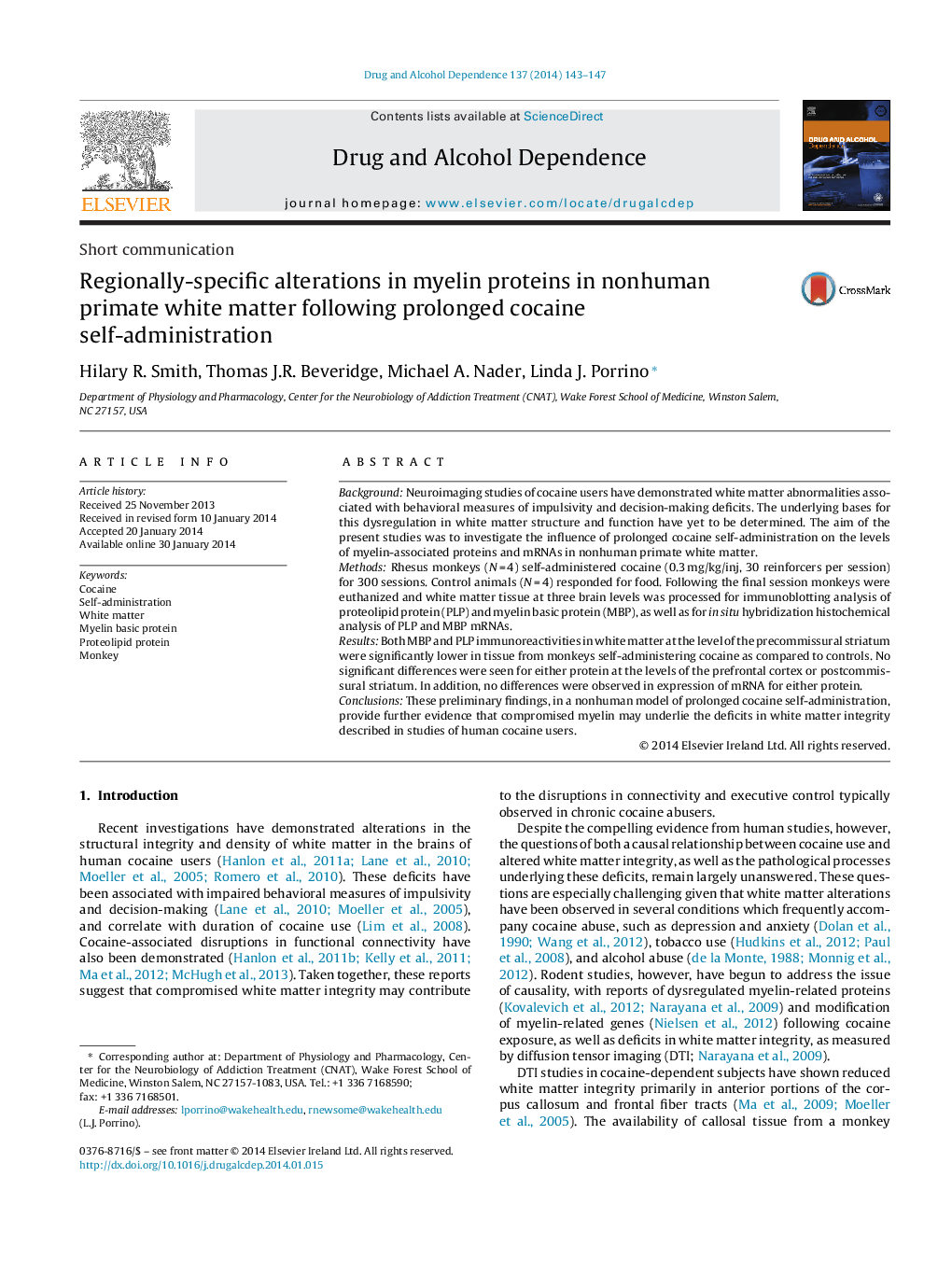| Article ID | Journal | Published Year | Pages | File Type |
|---|---|---|---|---|
| 1069951 | Drug and Alcohol Dependence | 2014 | 5 Pages |
BackgroundNeuroimaging studies of cocaine users have demonstrated white matter abnormalities associated with behavioral measures of impulsivity and decision-making deficits. The underlying bases for this dysregulation in white matter structure and function have yet to be determined. The aim of the present studies was to investigate the influence of prolonged cocaine self-administration on the levels of myelin-associated proteins and mRNAs in nonhuman primate white matter.MethodsRhesus monkeys (N = 4) self-administered cocaine (0.3 mg/kg/inj, 30 reinforcers per session) for 300 sessions. Control animals (N = 4) responded for food. Following the final session monkeys were euthanized and white matter tissue at three brain levels was processed for immunoblotting analysis of proteolipid protein (PLP) and myelin basic protein (MBP), as well as for in situ hybridization histochemical analysis of PLP and MBP mRNAs.ResultsBoth MBP and PLP immunoreactivities in white matter at the level of the precommissural striatum were significantly lower in tissue from monkeys self-administering cocaine as compared to controls. No significant differences were seen for either protein at the levels of the prefrontal cortex or postcommissural striatum. In addition, no differences were observed in expression of mRNA for either protein.ConclusionsThese preliminary findings, in a nonhuman model of prolonged cocaine self-administration, provide further evidence that compromised myelin may underlie the deficits in white matter integrity described in studies of human cocaine users.
